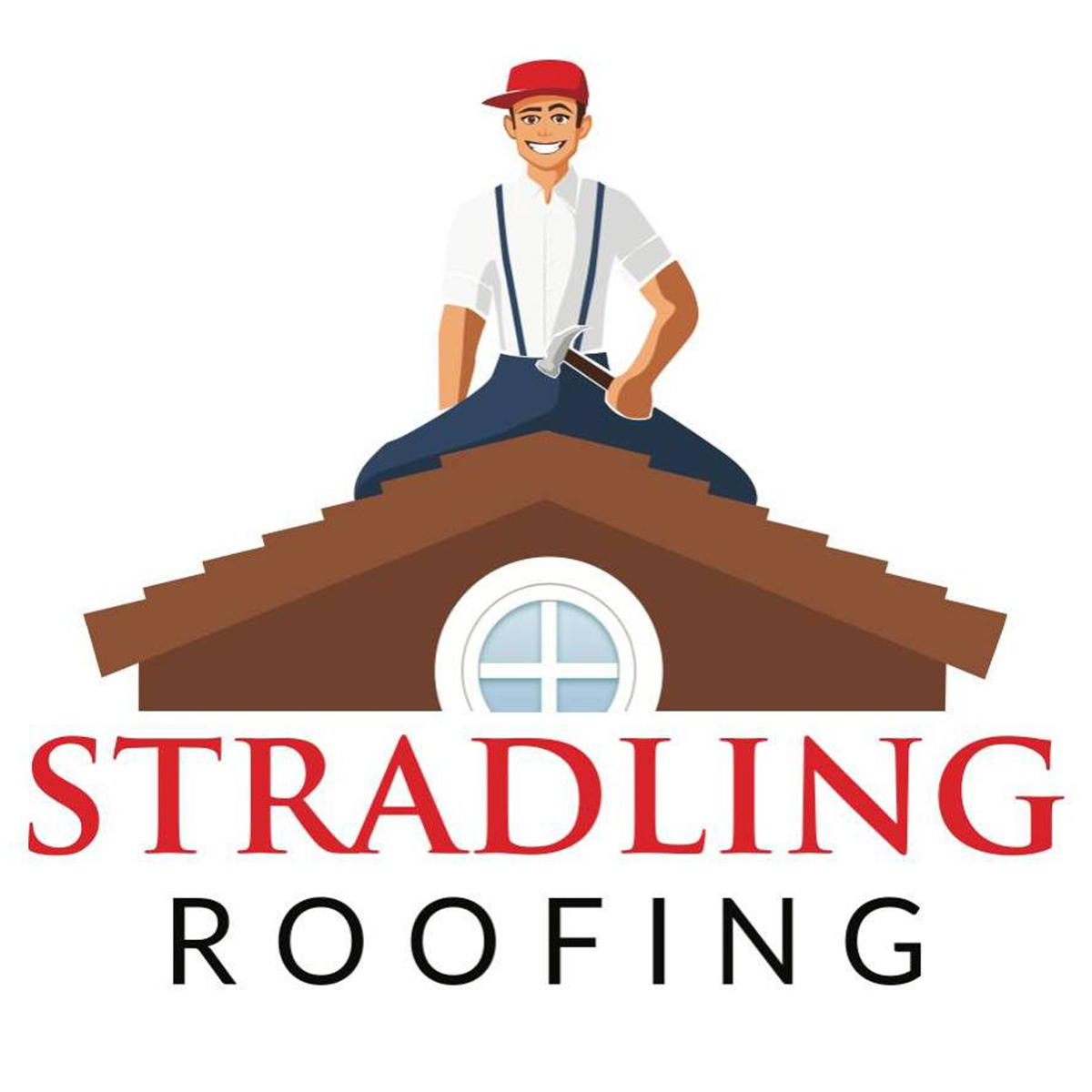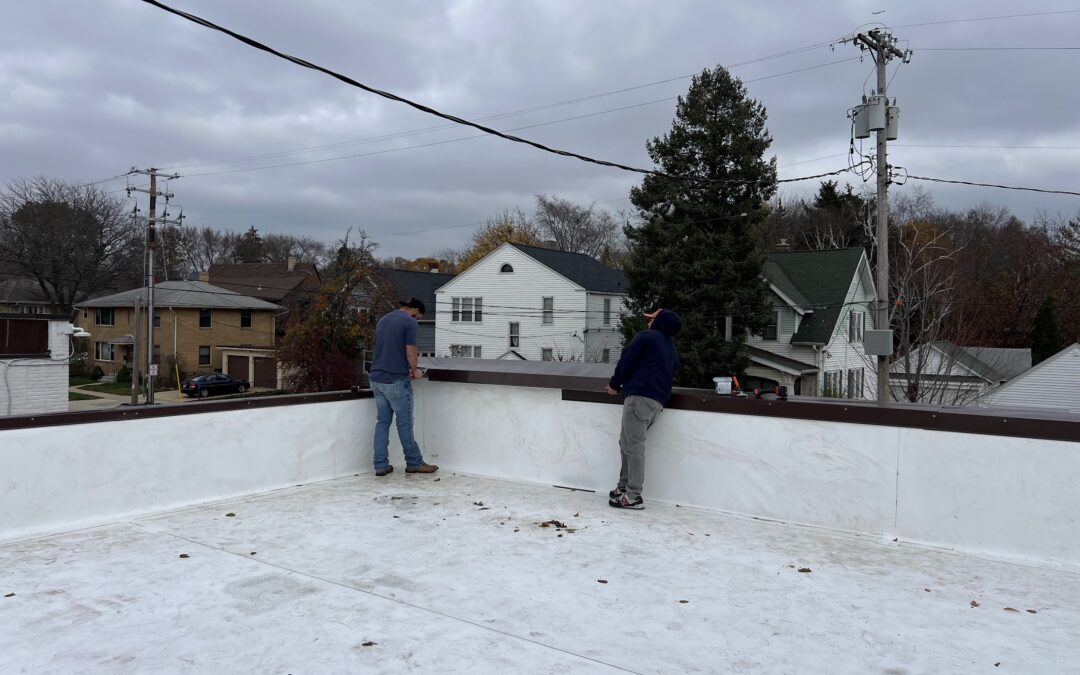Choosing the right roofing material for your commercial property in Phoenix, Arizona, is critical. Due to its durability, energy efficiency, and cost-effectiveness, PVC (polyvinyl chloride) roofing has become an increasingly popular choice among business owners. If you’re looking for a long-lasting, reliable roofing solution, look no further. In this article, we’ll explore the benefits of Phoenix Commercial PVC Roofing Services, the installation process, maintenance tips, and comparisons with other roofing materials.
Understanding Commercial PVC Roofing
PVC roofing is a single-ply membrane primarily used for flat or low-sloped commercial roofs. This roofing material is made from a robust, flexible material that offers exceptional resistance to weathering, chemicals, and fire. Its inherent flexibility allows it to accommodate building movements and thermal expansion without compromising its integrity.
In Phoenix, where intense heat and sporadic monsoons are common, PVC roofing stands up to the elements. Given its technical performance and cost-effectiveness, it’s an excellent choice for businesses seeking reliable protection for their investments.
Benefits of Phoenix Commercial PVC Roofing Services
1. Durability and Strength
- Strength: PVC roofing membranes are designed to withstand extreme stress, providing tensile strength that surpasses industry standards. This makes them highly resistant to tears and punctures, even from environmental factors or human activity.
- Lifespan: A properly installed and maintained PVC roof can last over 20 years, adding long-term value to your commercial property. Its longevity reduces the need for frequent replacements, resulting in lower overall costs.
2. Energy Efficiency
- Reflectivity: The reflective nature of PVC roofing minimizes heat absorption, helping to keep your building cooler during Phoenix’s scorching summers. This significantly reduces cooling costs, making it an energy-efficient option for commercial buildings.
- Environmental Impact: By lowering energy usage, PVC roofs contribute to green building practices. Additionally, many PVC materials are recyclable, enhancing their eco-friendliness.
3. Chemical and Fire Resistance
- Chemical Resistance: PVC membranes are resistant to damage from a wide range of chemicals, making them ideal for industrial environments or areas exposed to pollutants.
- Fire Resistance: PVC is naturally fire-resistant, which adds an important layer of safety to commercial buildings. This feature is especially valuable in urban settings or areas prone to wildfires.
4. Waterproofing
- Seam Strength: PVC roofing is installed with heat-welded seams that are watertight, eliminating the risk of leaks and water infiltration. This is especially important during Phoenix’s monsoon season when heavy rainfall can cause significant damage to inadequate roofing systems.
Installation Process for Commercial PVC Roofing
Step 1: Evaluation and Preparation
The existing roof is thoroughly inspected to identify areas that need repair, such as cracks, weak spots, or inadequate drainage. These issues must be addressed before installation to ensure a smooth process.
Surface Preparation: The roof surface is cleaned and primed to ensure proper adhesion of the PVC membrane. This step helps avoid future problems and guarantees a strong bond.
Step 2: Membrane Installation
- Layout Planning: PVC sheets are arranged to minimize seams and ensure efficient coverage. Roof features such as vents and skylights are considered during this phase.
- Attachment Methods: Depending on the building’s needs, the membrane can be mechanically fastened, fully adhered, or ballasted. Each method is chosen based on the specific requirements of the building. which adds an important layer of safety to commercial buildings. This feature is especially valuable in urban settings or areas prone to wildfires.
Step 3: Sealing and Finishing
- Heat Welding: Using specialized equipment, seams are heat-welded to create a continuous, watertight membrane that will last for years.
- Edge Details: Proper sealing around roof edges, penetrations, and terminations prevents leak points and ensures long-term durability.
Maintenance of PVC Roofs from Phoenix Commercial PVC Roofing Services
1. Regular Inspections
Schedule inspections every 2 months, as well as during Spring and Fall, to catch small problems before they escalate. It’s also important to inspect the roof after storms or hail to ensure no damage has occurred.
2. Debris Removal
Regularly remove debris like fallen leaves, tree branches, or other obstructions from the roof surface. Debris can clog drainage systems and cause damage to the membrane, so keeping the roof clean ensures optimal performance.
3. Immediate Repairs
If you notice any punctures, tears, or seam separations, have them repaired by a professional roofing service as soon as possible. Prompt repairs prevent minor issues from turning into major, expensive problems.
PVC Roofing vs. Other Materials
PVC vs. TPO (Thermoplastic Olefin)
- Durability: PVC is more chemical-resistant than TPO and is better suited for industrial environments.
- Flexibility: PVC offers greater flexibility across a wider range of temperatures, reducing the likelihood of cracking or splitting in extreme conditions, such as those often seen in Phoenix.
Residential PVC Roofing Applications
While PVC roofing is primarily used for commercial properties, it’s becoming increasingly popular in residential applications, especially for homes with flat or low-pitched roofs. Homeowners seeking durable, energy-efficient roofing may find PVC to be an attractive option.
- Aesthetic Flexibility: PVC roofing comes in a variety of colors and patterns, allowing it to blend seamlessly with modern or contemporary architectural designs.
- Low Maintenance: Homeowners appreciate PVC’s strength and low maintenance needs, saving them money over time.
How to Choose a Commercial PVC Roofing Company in Phoenix
1. Experience and Expertise
Choose a roofing contractor with experience installing and maintaining PVC roofing systems. A skilled roofer will know the proper techniques to ensure correct installation and will adhere to safety and quality standards.
2. Licensing and Insurance
Ensure the roofing contractor is fully licensed and insured to work in Phoenix. This protects you in case something goes wrong during the installation process.
3. Client Reviews and References
Check reviews and references from previous clients to gauge the reliability and quality of the contractor’s work. Positive feedback will give you confidence in their ability to handle your roofing project.
Phoenix Commercial PVC Roofing Services and Sustainability
PVC roofing is gaining popularity as part of the growing trend toward sustainability, thanks to its durability, recyclability, and energy efficiency. These features reduce the environmental impact of commercial buildings and help companies earn green building certifications.
PVC roofs are particularly beneficial in urban areas because their reflective properties reduce the effect of urban heat islands, and they’re also ideal for solar panel installation. These environmentally friendly solutions improve the image and operational performance of Phoenix-based companies.
Additionally, PVC roofing systems can be integrated with green roofs to enhance insulation and support plant life. This flexibility makes PVC a versatile roofing option that can meet the evolving demands of modern architectural design.
Stradling Roofing: Your Trusted Phoenix Commercial PVC Roofing Experts
At Stradling Roofing, we specialize in providing high-quality PVC roofing services for commercial properties in Phoenix. Our expert team ensures that your roofing system will perform at its best for years to come. Contact us today to discuss your roofing needs and receive a free, personalized quote!

